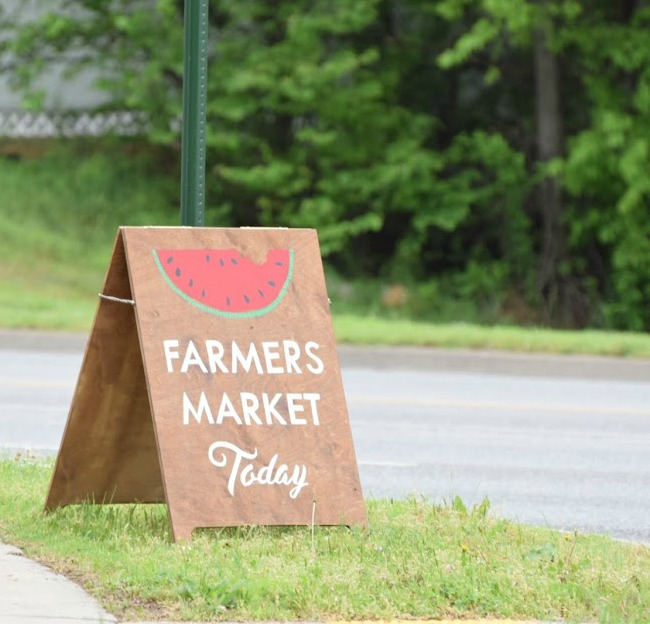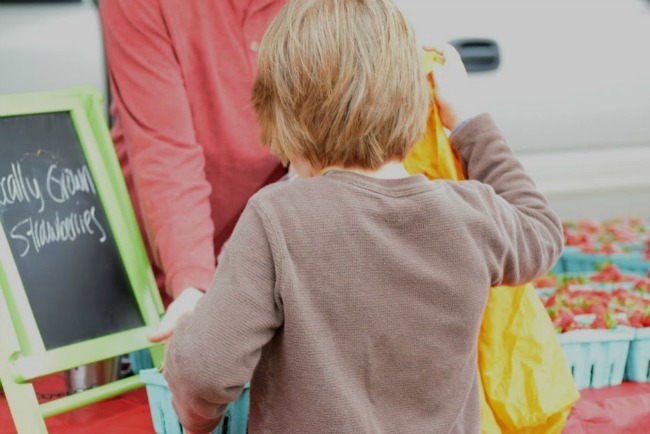I want my children’s education to be well rounded, and I get excited when I see them apply reading and math skills in real life situations. Sometimes, however, the academic skills they learn at home and in the classroom take a back seat to the development of their character.

We’ve been anticipating a new farmers market in our community for several months, and I used the opportunity as an ideal practical application for a few values I want to pass on to my boys.
1. Tenacity. Tiffany Selvey, manager of the new Mill Street Market in Springdale, has been working on putting together the market for nearly a year; collaborating with the city of Springdale and diligently searching for vendors to meet market expectations. This spring, her hard work paid off — and the new challenge of maintaining the market began.
Her work is dependent on the weather. As an urban farmer selling her own produce and as the market manager, Ms. Selvey plans for all kinds of weather and must be flexible enough to solve problems on the spot. It’s worth a conversation with kids about the kinds of savvy skills different jobs require and the value of working with others to achieve a goal.
2. Money Management. I handed a few dollars in spending money to my boys, so they could practice staying within a budget. As they moved from booth to booth, checking the prices, they didn’t just practice addition. They also practiced the art of stretching their money and getting the most bang for their buck. My kids were already excited about the opening day of this new farmers market, and providing a few $5 bills upped the enthusiasm. Money talks.

3. The benefit of community. In the first half-hour, we saw several familiar faces like our former neighbor and children’s school bus driver and our family dentist. People we know from around town arrived at this one venue on a weekend morning to see what others in the community have to offer. That’s what we call a winning concept.
4. An appreciation for the arts. Farmers markets aren’t only about food. Local craftspeople sell wares, musicians play music, and jewelry makers sell their unique treasures. That’s right, kids. Not everything is produced by machines.

5. A reminder about where our food comes from. In its purest form, our food comes from farmers. Yes, we do the bulk of our shopping at the grocery store. That food came from farmers. Last week’s take-out meal with the chicken and green beans? Farmers. The breakfast of eggs and home fries we ate before heading to market? You got it. Farmers.
Last year, my older boys accompanied me on a trip to Winslow, Ark., where I interviewed a farm family who raise grass-fed cattle. We visited their cows in the pasture, and we learned about the hard work required to raise those cows for market. We even met the butcher. Those farmers now sell their meat at the new market, and that connection for my children is priceless. This did renew a few questions about the cows they met being turned into meat. Some other time, I’ll talk with them about the circle of life. On that day, we bought meat.
6. The value of supporting local farmers. Speaking of farmers, we need to be thankful for the opportunity to buy food from people so close to where we live.
Selvey emphasized that the farmers are experts on what they grow and sell. They are the ones who have invested in the process from the beginning, both personally and professionally. In a society where multiple layers and extended periods of time exist between farmers and consumers, being able to support those who grow and sell their food directly is a privilege.
By Rhonda Franz
